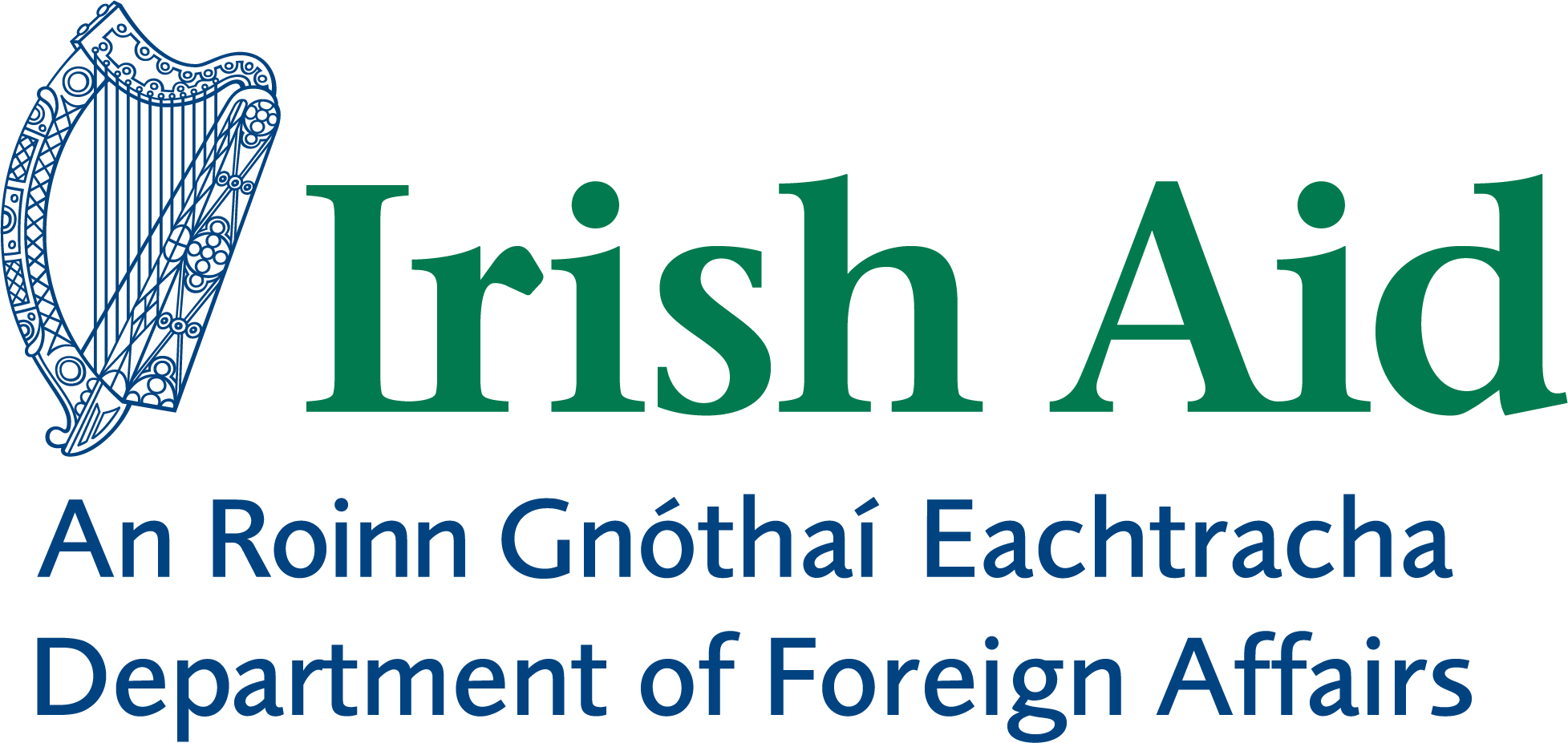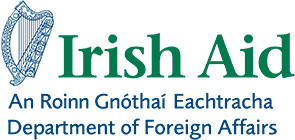Oxfam Ireland
Let’s end poverty and inequality together

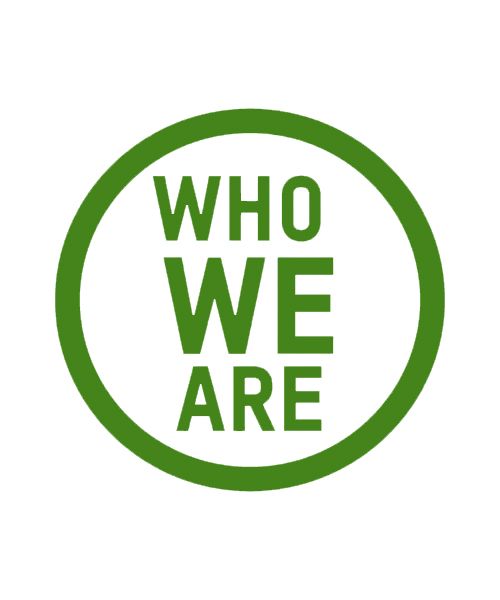
A just and sustainable world.
We fight inequality to end poverty and injustice
Equality: We believe everyone has the right to be treated fairly and to have the same rights and opportunities.
Empowerment: We acknowledge and seek to expand people’s agency over their lives and the decisions that impact them.
Solidarity: We join hands, support and collaborate across boundaries for a just and sustainable world.
Inclusiveness: We embrace diversity and difference and value the perspectives and contributions of all people and communities in their fight against poverty and injustice.
Accountability: We take responsibility for our action and inaction and hold ourselves accountable to the people we work with and for.
Courage: We speak truth to power and act with conviction from the justice of our causes.
We are rights-based: Our work is grounded in our commitment to the universality of human rights and respect for protective legal frameworks.
We are feminist and anti-racist: We recognise that there is no economic, social or environmental justice without justice for all. Our feminist and anti-racist principles guide all our action and interaction.
We fight inequality: We stand firm against poverty and injustice everywhere, working with people, communities, partners, and allies for just and sustainable development and solutions.
We are humanitarian: We work with communities before, during and after crises to build their resilience, protect and save lives, and address together the root causes of conflict and disaster.
We are both local and global: We are a global network of locally rooted, interdependent civil society organisations. We build solidarity and connect people across borders and regions.
We are driven by diversity: We are a multicultural organisation that brings together people and partners of different socio-cultural backgrounds, sex, genders,abilities and ages.
We are a knowledge organisation: We consistently seek to generate new insights that can drive solutions to complex problems. Our programmes, advocacy and campaigning asks are grounded in evidence and experience.
We challenge injustice and inequalities, shaping collective understandings and solutions: We work with the people most impacted to build more just, equitable and sustainable systems, based on our understanding of how these interact and influence each other. We are a global voice on inequality, including economic inequalities that drive poverty, such as unpaid care work; tax justice; climate justice, and responsible business practice.
We work across humanitarian, development and influencing approaches: We provide support and relief to communities in developing countries to protect and rebuild their lives in times of crisis. We work with people and communities experiencing poverty and disadvantage to find sustainable ways to build fair and independent lives, and we mobilise people to stand up and speak out, to influence those in power to ensure that people living in poverty have a say in the critical decisions that affect them, their families and communities.
We amplify the agency and leadership of people experiencing exclusion, exploitation and crises: We support individuals, communities and movements demanding social justice. We have played an important role working with women’s rights organisations and feminist allies to demand an end to violence against women, equal access to education and support women’s economic empowerment.
We hold state and non-state actors, including corporations, to account: We engage and partner with governments, corporations and other duty bearers to ensure their policies and practices provide sustainable solutions to poverty, inequality, injustice and crises.
We leverage our reach and resources to connect, convene and build momentum for our causes: We link activists, organisations and movements across the world, opening spaces, sharing knowledge and capacities and building solidarity. We are a reliable partner and know when to follow, when to lead and when to stand side-by-side with others.
OUR VISION FOR 2030
Our Four Goals and Strategic Objectives
In line with our 10-year strategic framework, we deliver a range of programme work, including long-term development projects, humanitarian action, influencing and campaigning, to achieve
our four goals.
GOAL 1
JUST ECONOMIES
GOAL 2
GENDER JUSTICE
GOAL 3
CLIMATE JUSTICE
GOAL 4
ACCOUNTABLE GOVERNANCE
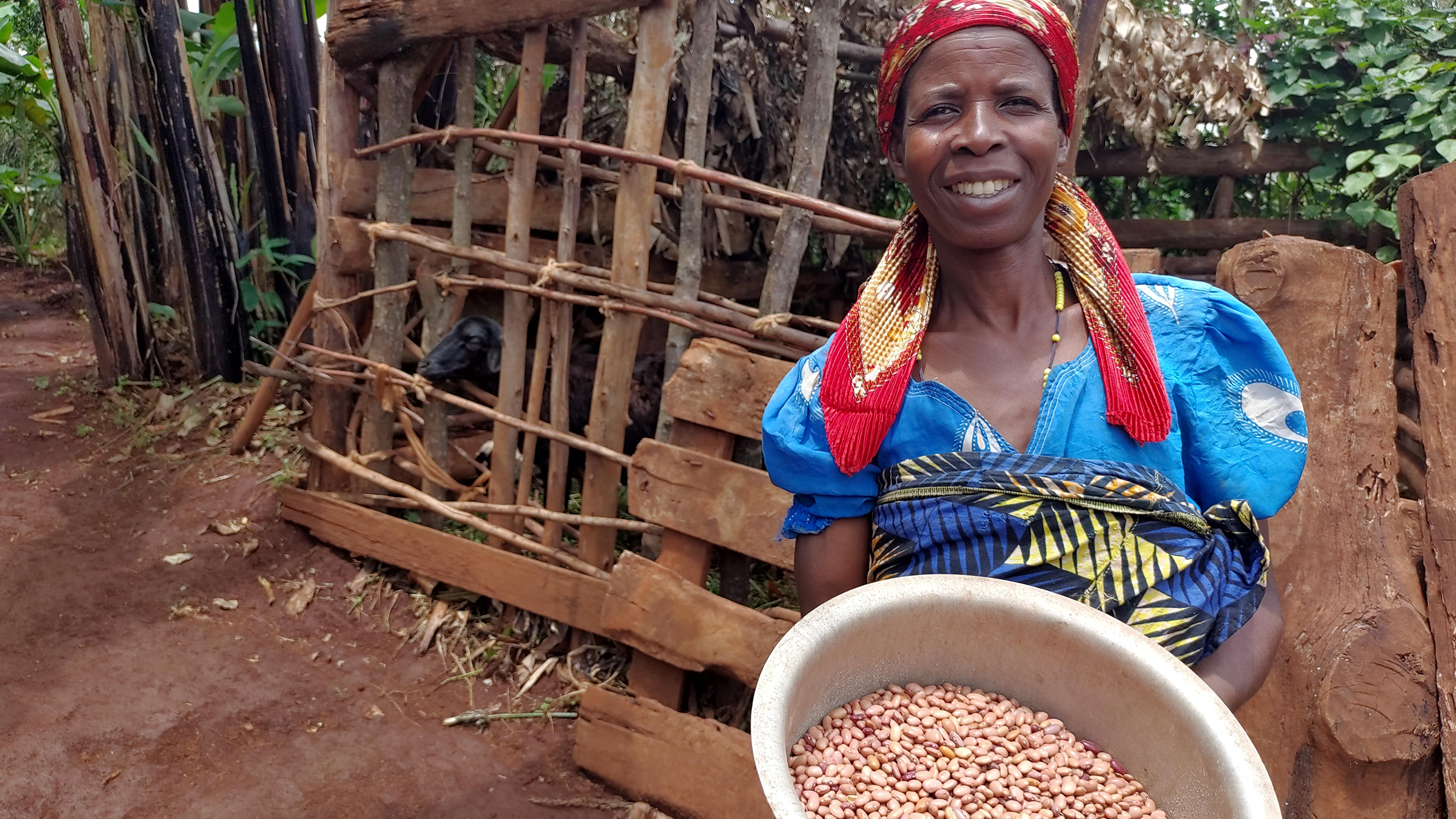
Goal 1:
Just Economies
People and planet are at the centre of feminist and sustainable economic systems that address inequality and end poverty.
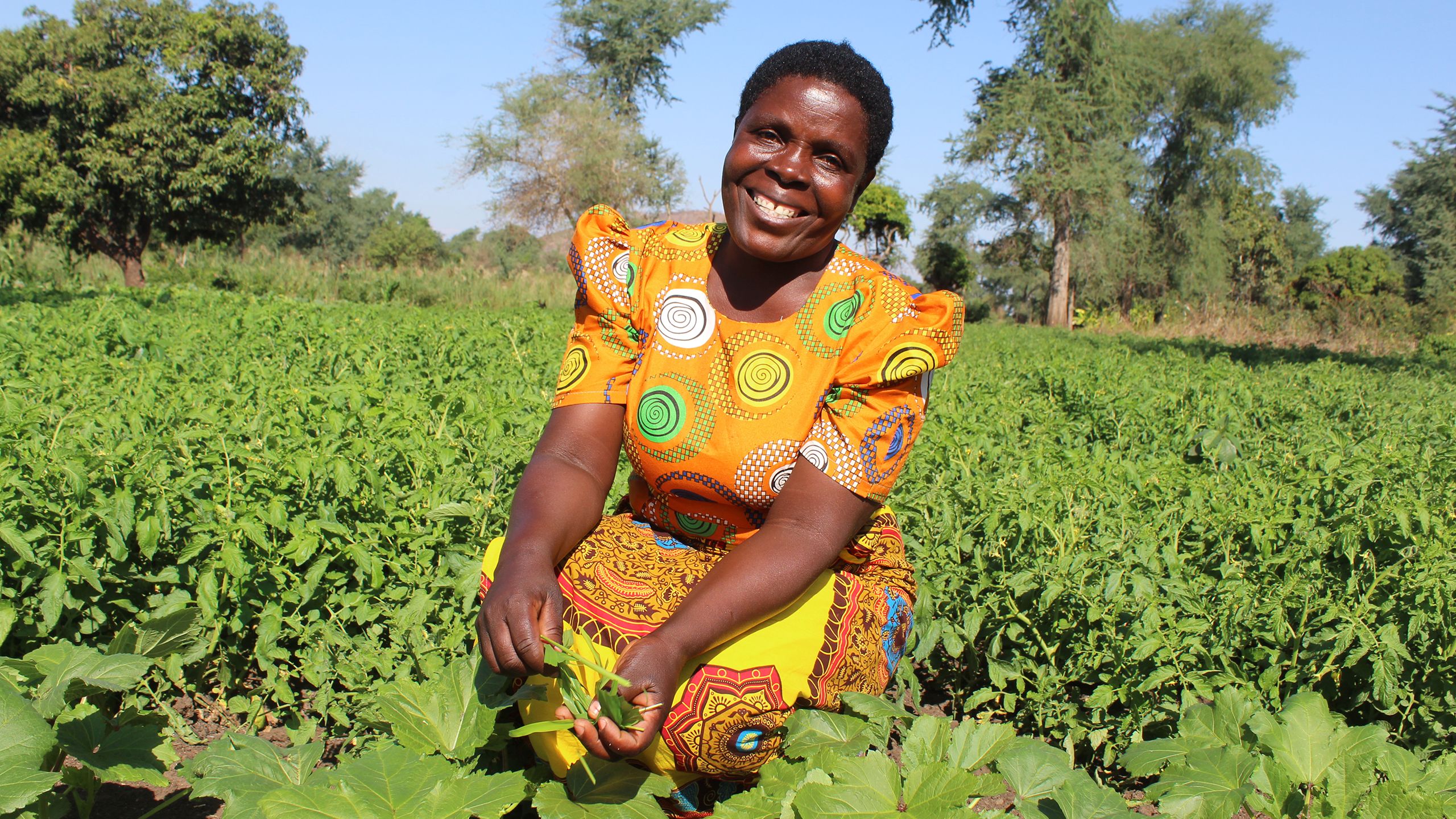
We want to see a just economy that promotes equality, protects the planet and ends poverty. One that builds social cohesion and supports the economic empowerment of women and marginalised groups. One that supports the rights of all workers, offers social protection and ensures that livelihoods and planetary resources can be sustained.
In Ireland and globally, we work to ensure that governments and the private sector fulfil their obligations in implementing fair, sustainable and responsible business policies and practices, and are held accountable whenever they contribute to inequality or the climate crisis. Across our programmes, we support the economic empowerment of women, young people and marginalised groups.
STRATEGIC OBJECTIVES:
- Transformed economic models and practices that address poverty and inequality, prevent exploitation and abuse, and advance environmental and social well-being.
- Fairer tax systems in Ireland and globally and an end to tax avoidance by corporations and wealthy individuals.
- Better mechanisms to help communities prevent, mitigate and respond to shocks and crises while supporting resilience and early recovery.
- The private sector aligns its core business strategies and purpose with the Sustainable Development Goals and human rights principles.
In Zimbabwe, we reached 5.5million people across multimedia platforms, including radio shows, which facilitated conversations on the 2022 National Budget and the roles of women and young people in furthering the nation’s economy.
In the Democratic Republic of Congo 7,000 people were trained by 30 local hygiene promoters to protect themselves and their communities from public health threats including diarrhoeal and respiratory diseases.
In Uganda, we supported people to increase their average incomes from US$42.63 (€37.33) in 2020 to US$94.69 (€82.90) in 2021.
In Ireland, we undertook significant advocacy work through the Irish media in the run up to the agreement of the Organisation for Economic Cooperation and Development’s (OECD) global tax deal in early October 2021, emphasising that this was a poor deal for low-income countries.
Goal 2:
GENDER JUSTICE
Women and girls in all their diversity live free from gender oppression, discrimination and violence.
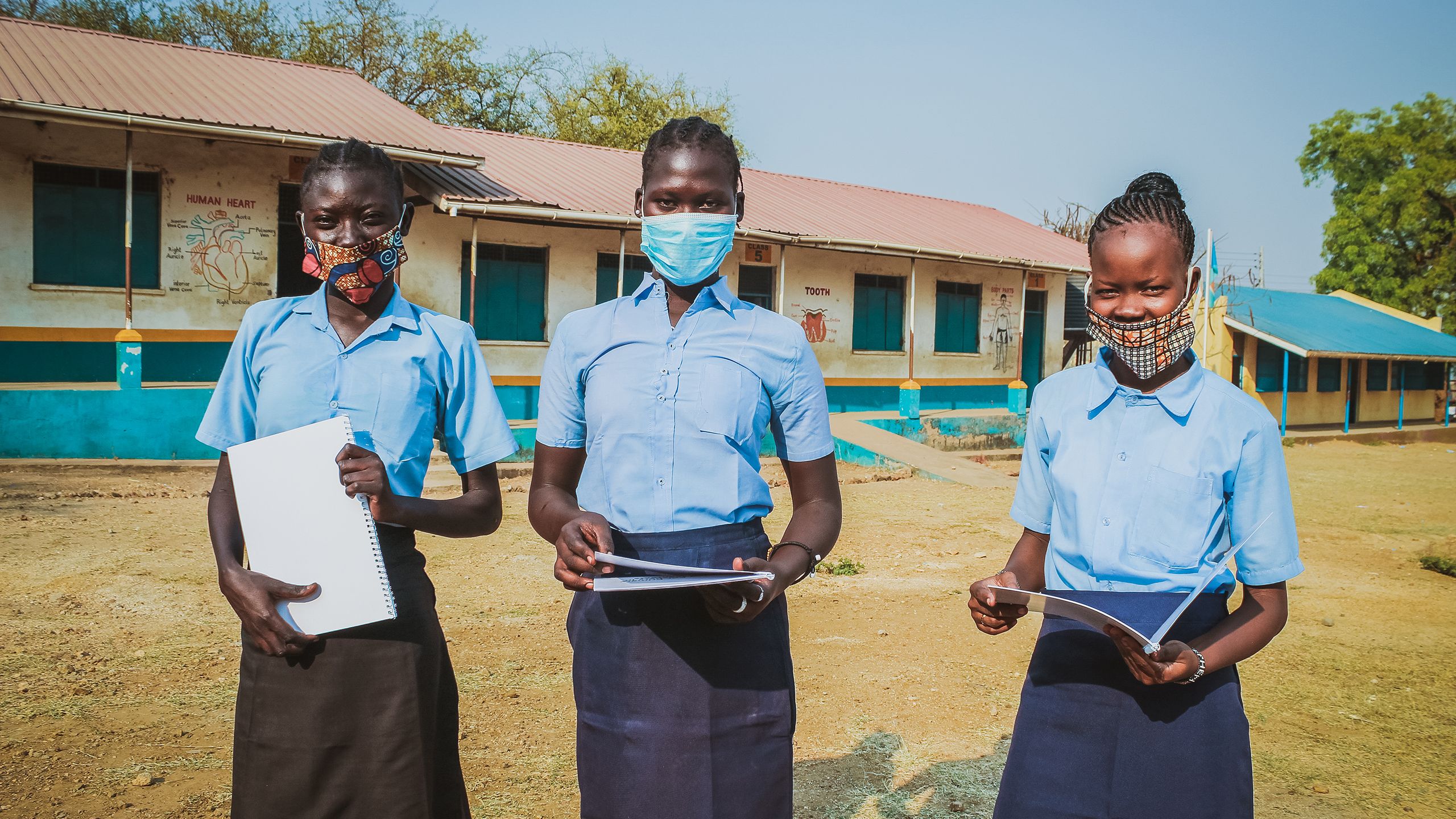
We want to see a just society where women and girls live free from poverty and violence, meaningfully contribute to political processes and spaces, and participate in decent work for fair wages.
In Ireland and globally, we work to challenge harmful social norms and belief systems that impact women living in poverty the most. We focus on supporting women and girls to practice agency and choice in their lives and to challenge the patriarchal practices that prevent them from realising their rights.
STRATEGIC OBJECTIVES:
- Women and girls lead and meaningfully participate, safely and freely, in social, economic, cultural and political life with full respect for their rights and dignity. They exercise agency and autonomy over their bodies and lives.
- Women and girls live free from all forms of sexual and gender-based violence and any such threats. Social norms, legal frameworks, policies and practices prevent violence and hold perpetrators accountable. Survivors have access to free quality support, services and justice at all levels including within customary and religious laws.
- Women are represented equally in leadership positions – receiving the same recognition and reward as men, and drive public policy, including decision-making on peace and security.
In Malawi, Oxfam and its local partners leveraged Oxfam’s ENOUGH! global campaign, to improve awareness on ending violence against women and girls at district and community levels. Oxfam and partners also worked with local leaders, human rights defenders, child protection workers and community victim support units, among others to conduct door to door conversations on ending violence against women and girls. In total, Oxfam’s campaigns on GBV in Malawi have reached out to an estimated 2.4 million people at the national and district level.
In Tanzania, 28,277 people were reached through campaigns aimed at challenging the social norms that perpetuate GBV.
In Rwanda, 15,520 people were reached through GBV awareness campaigns. Subsequently, 89% of those reached reported a reduction in GBV in their communities.
Goal 3:
CLIMATE JUSTICE
The climate crisis is abated, environmental ‘tipping points’ are averted through well-resourced, radical solutions which improve people’s well-being, and there is environmental justice for all.
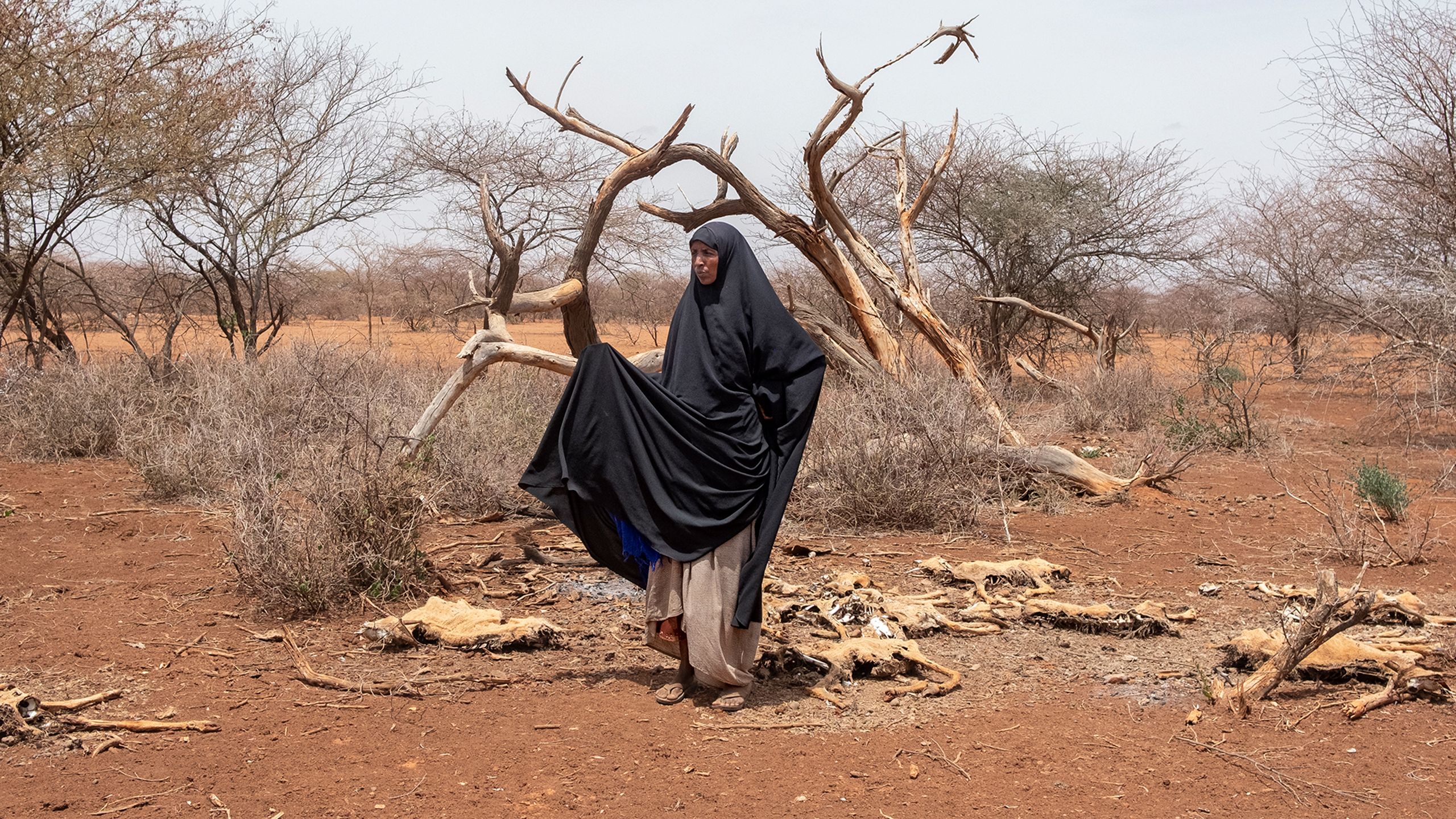
We want to see governments and big business across the world do more to protect our planet, recognising that climate change is a man-made disaster that is already reversing progress made in the fight against poverty and inequality. Globally, we want a sustainable food system that ensures no one goes hungry and a circular economy that eliminates wastes and tackles over-production and over-consumption.
In Ireland and globally, we work to tackle the impact of climate change by holding governments and corporations to account, calling on them to stop destructive practices and instead invest in sustainable solutions. We work to ensure that the voices of feminist organisations, youth and indigenous peoples are amplified in climate negotiations and lead the transition towards greener and fairer economic solutions. We also work with local communities most impacted by the climate crisis to prevent, mitigate and respond to climatic shocks and disasters, building resilience and long-term solutions.
STRATEGIC OBJECTIVES:
- The systems and practices that drive the climate crisis are transformed while guaranteeing the rights of those most impacted.
- Governments and corporations are held to account and take responsibility for adaptive responses.
- Local knowledge, expertise and leadership ensures governments at all levels are held accountable for just, equitable and timely responses, which consider the gendered impacts of the climate crisis and how it impacts conflict and fragility.
- All productive systems, especially the food and textile sectors, are transformed to operate within planetary boundaries and enable all people working within them to live with dignity, earn a living wage and adapt to the impacts of the climate crisis, protecting the rights of those most affected.
We were involved in the production of a number of reports related to climate justice, including ‘Tightening the Net’ which explored the explosion of net zero commitments, many of which lack clarity and transparency, that could lead to a surge in demand for land, particularly in developing countries. This report was covered in a number of news outlets including national print and online. Other reports on climate change also featured in national media, including our report on climate and inequality, the IPCC report and on Carbon Inequality.
We continued our ongoing advocacy to ensure that Ireland contributes its fair share of climate finance to support poor countries to adapt to and mitigate climate change.
In collaboration with Trócaire, we published and launched a major new report, on Sustainable Food Systems: Steps Ireland can take to become a global leader in advance of the UN Food Services Summit. Over 70 people from 15 countries attended the online launch. We were involved in a number of advocacy meetings with key policy and political actors to promote the recommendation form the report. It was also covered on national radio.
Goal 4:
Accountable Goverance
Governance systems and governments are people -
and planet-centred, just, inclusive and accountable.
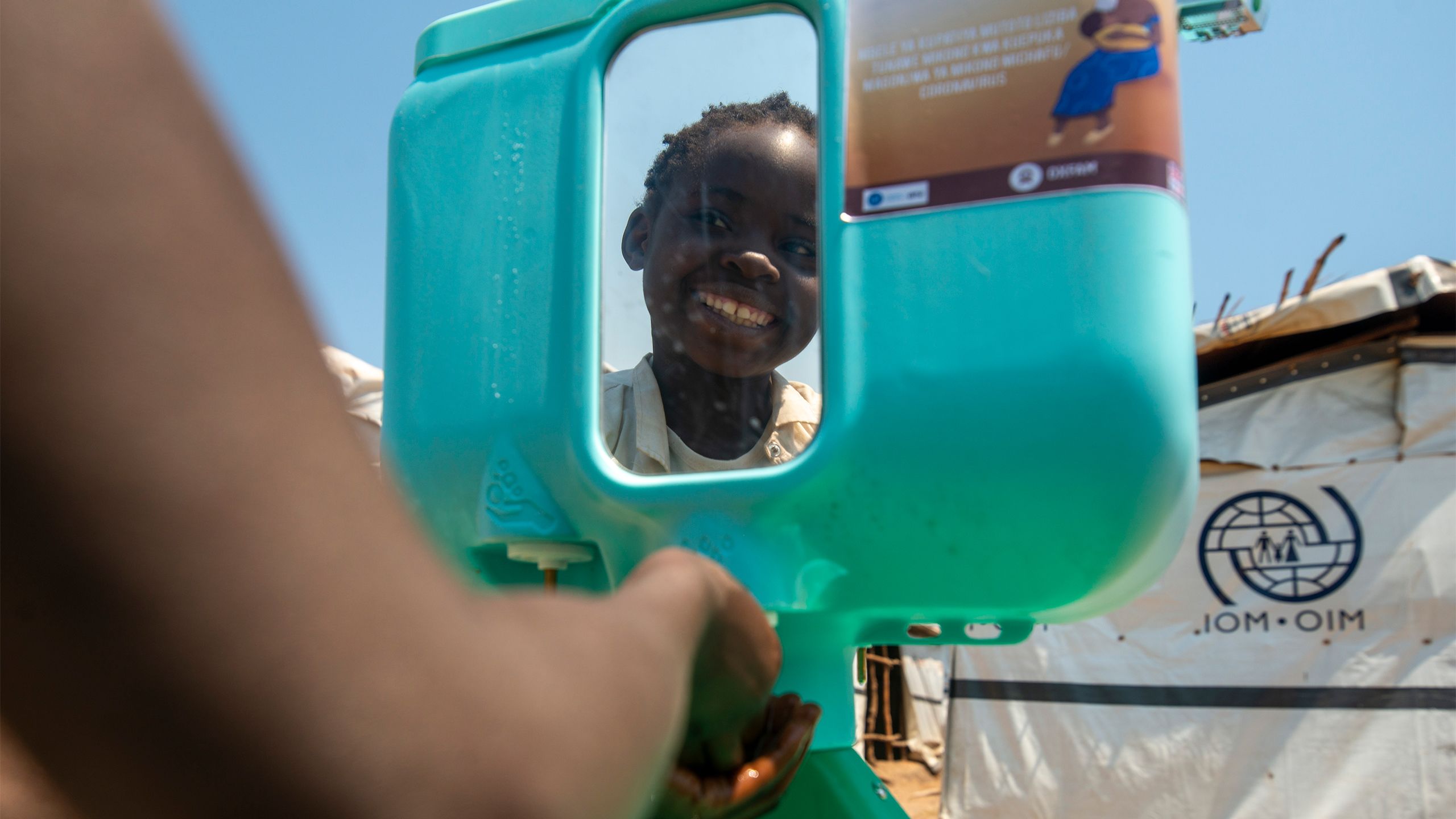
We want the systems and structures that govern our world to be transformed to tackle poverty and inequality, instead of often perpetuating them. We demand accountable and inclusive governance, that upholds the hard-won gains achieved by global movements across human rights and women’s rights. A just and sustainable future depends on safe and vibrant spaces that allow all people to hold the powerful to account.
In Ireland and globally, we work to influence and hold to account the Irish government and world leaders in their obligation to uphold protective international norms including international humanitarian law, human rights and refugee law on this island, in international affairs and through the multilateral system.
STRATEGIC OBJECTIVES:
- People, particularly those who experience exploitation, exclusion and crises, are able to exercise their agency to defend, claim and realise their rights and can challenge structures of inequality and injustice to build democratic, equal and sustainable societies.
- Digital rights are respected and digital technology is accessible to all, surveillance free, and can be used safely without fear to claim and access rights from governmental, corporate and other duty bearers safely.
- Governments uphold people’s right to essential services such as healthcare, water, education, and social protection in gender-responsive ways that do not exclude the poorest and most vulnerable populations.
- Governments respect and enable safe democratic and civic society space, so that people can hold governments accountable for their actions and their duty to protect and uphold human rights.
In Tanzania, 1, 222 Certificates of Customary Rights of Occupancy were awarded to small holder farmers securing their rights to land.
In South Sudan, 35,000 people are better informed of their rights and how to claim and access them from more accountable local authorities.
In Gaza, we supported the rehabilitation of three Primary Heath Care Centres and engaged in public health promotion, improving access by 152,717 people in the Gaza Strip to safer medical practice and services.
How we spent our money
In 2021/2022, we continued to raise vital funds thanks to the generosity of our supporters and people across the island of Ireland.
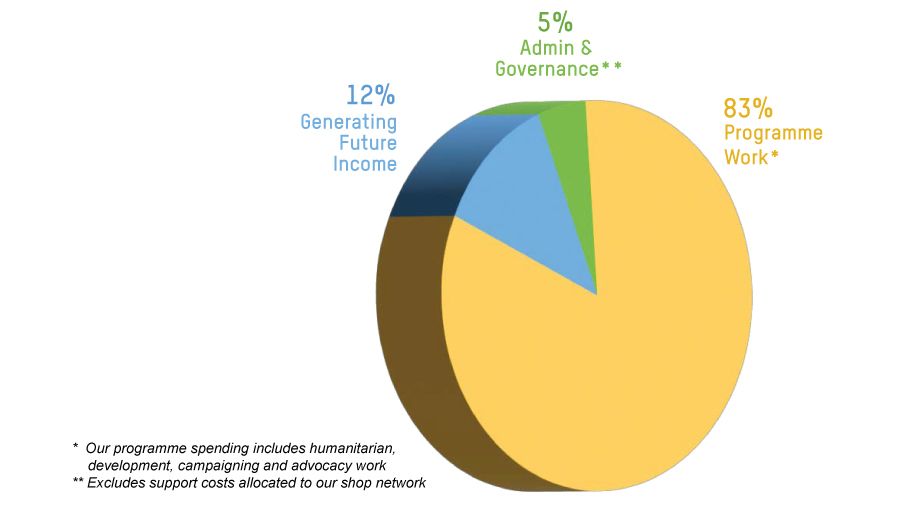
How we maximised your donations
83% ensures we can provide life-changing long-term development projects, life-saving humanitarian assistance and campaigning and advocacy to tackle the root causes of poverty and injustice.
12% ensures we are doing everything we can to raise funds from different types of donors and to let the public know about our work. This year we invested more to ensure that we will be able to grow our resources in the future, reaching more communities in poverty.
5% ensures we work in the most efficient and effective way, and the money donated is spent wisely and well managed.
In emergency appeals, 100% of your donation goes to that specific response fund, providing vital and practical supports such as clean water, sanitation, food and the crucial staff costs to deliver the response.
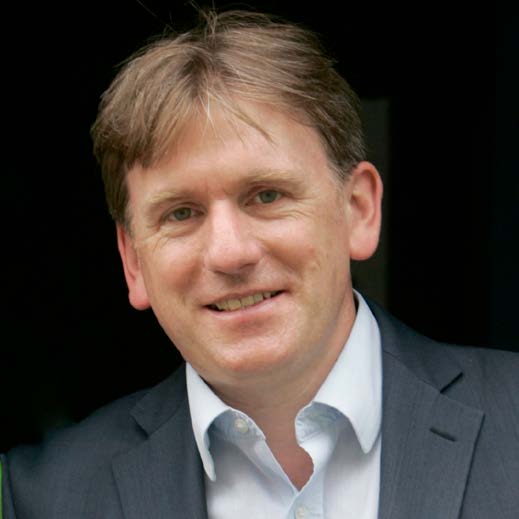
Message from the Ceo
Over the last year, Oxfam Ireland’s programme and humanitarian work directly supported communities in 11 countries, across Africa and Asia. Our work focused on building resilient communities and responding to crisis through women’s and youth economic empowerment, gender equality, and protecting the rights of vulnerable people as well as holding governments and decision-makers to account.
Our influencing work continued to call for a more equal world, including through our work with the People’s Vaccine Alliance Ireland on ensuring equal access to COVID-19 vaccines, treatments and diagnostics as well as our engagement at the 26th UN Climate Change Conference of the Parties (COP26) in Glasgow, urging governments to take action to tackle the escalating climate crisis.
We worked to respond to the humanitarian crisis as a result of the conflict in Ukraine, a crisis that is deepening food insecurity globally, including in many of the countries where we work. The welcome and unprecedented response to people forced to flee Ukraine allowed us to continue to call on the EU to reform its migration policies and procedures and ensure everyone in search of safety and refuge is treated the same, regardless of regardless of race, religion, gender, sexual orientation, disability, age or country of origin.
All of this work and more is made possible by our supporters and their ongoing commitment in financial giving, shopping and donating through our network of shops, campaigning for change and volunteering. Together, we have delivered impactful and life-changing programmes, and have once again been deeply involved in influencing policy on behalf of people living in poverty. I would like to take this opportunity to thank our many supporters for their generosity and loyalty.
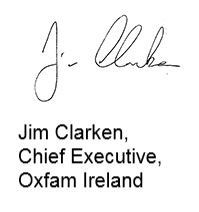
Read our annual report in full below
